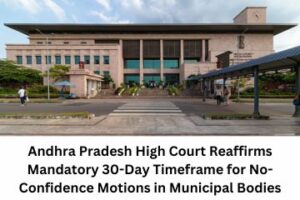Section 482 CrPC – High Court Can Recall Judgment/Order Which Was Passed Without Hearing A Person Prejudically Affected By It
Case: Daxaben vs State of Gujarat
Coram: Justices Indira Banerjee and V. Ramasubramanian
Case No.: SLP (Crl.) No.1132-1155 of 2022
Court Observation: “Hearing a cousin-cum-employee of the deceased cannot and does not dispense with the requirement to give the wife of the deceased a hearing. The wife of the deceased would have greater interest than cousins and employees in prosecuting accused persons charged with the offence of abetting the suicide of her husband.”
In Krishna Kumar Pandey (supra) this Court referred with approval, to the judgment of this Court in State of Punjab v. Davinder Pal Singh Bhullar and Ors. where this Court held that the High Court was not denuded of inherent power to recall a judgment and/or order which was without jurisdiction, or in violation of principles of natural justice, or passed without giving an opportunity of hearing to a party affected by the order or where an order was obtained by abusing the process of Court which would really amount to its being without jurisdiction. Inherent powers can be exercised to recall such orders.. The High Court rightly found, in effect, that it had the inherent power to recall a judgment and/or order which was without jurisdiction or a judgment and/or order passed without hearing a person prejudicially affected by the judgment and/or order. The High Court, however, fell in error in not recalling the order dated 20th October 2020. The High Court did not address to itself, the question of whether it had jurisdiction to quash a criminal complaint under Section 306 of the IPC, which is a grave non-compoundable offence, entailing imprisonment of ten years, on the basis of a settlement between the parties.
“The Criminal Proceeding cannot be nipped in the bud by exercise of jurisdiction under Section 482 of the Cr. P.C. only because there is a settlement, in this case a monetary settlement, between the accused and the complainant and other relatives of the deceased to the exclusion of the hapless widow of the deceased”
Previous Posts




